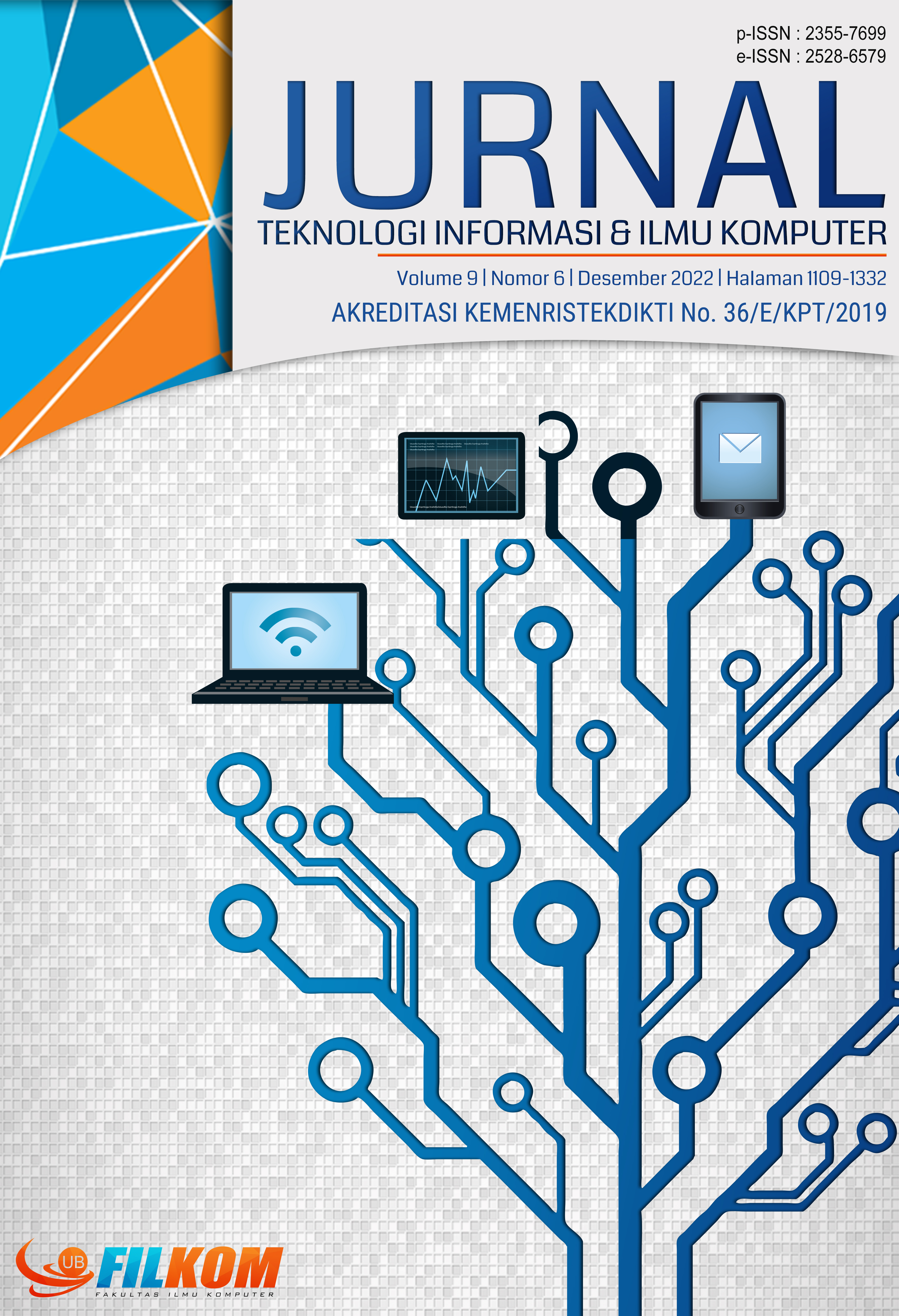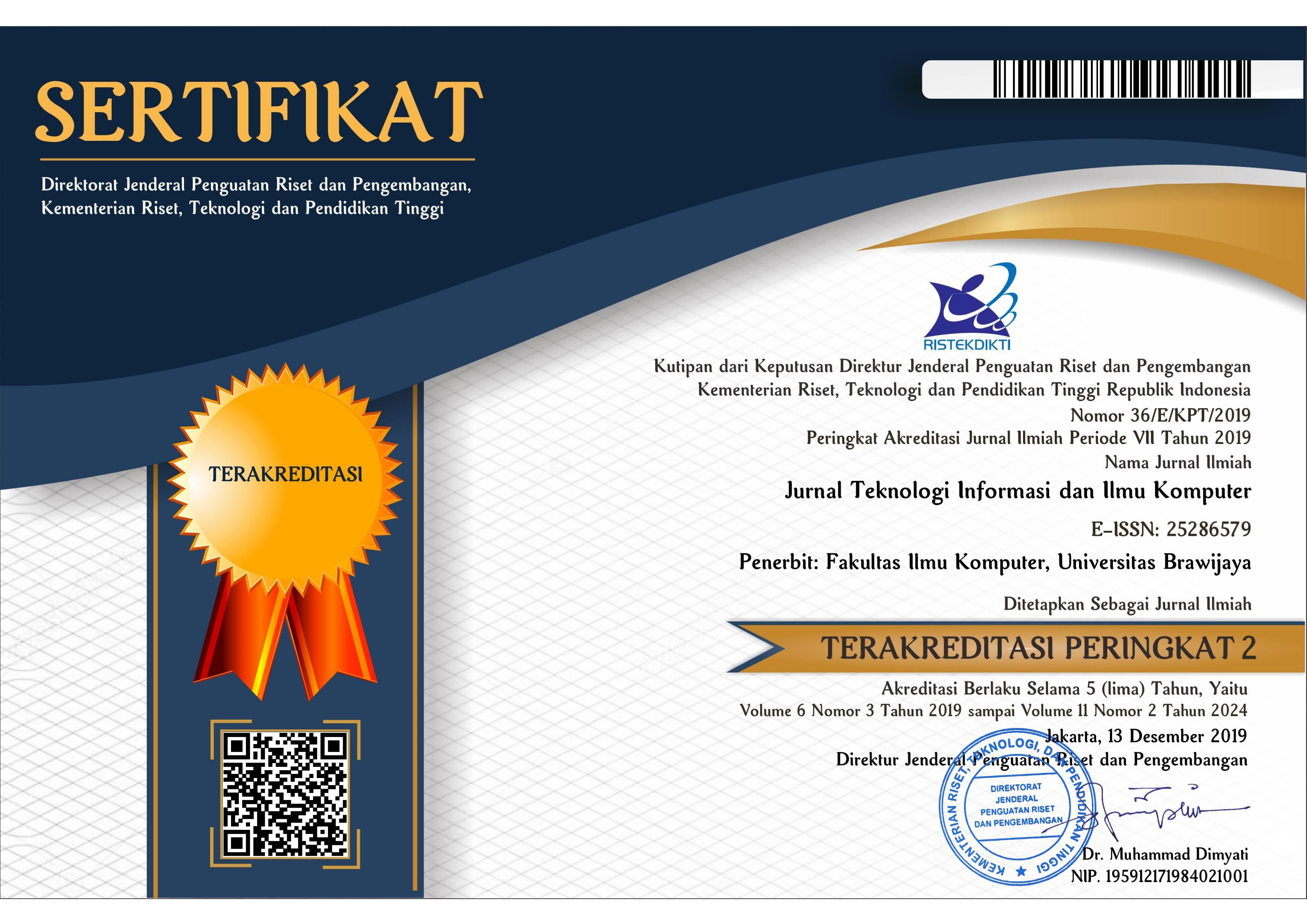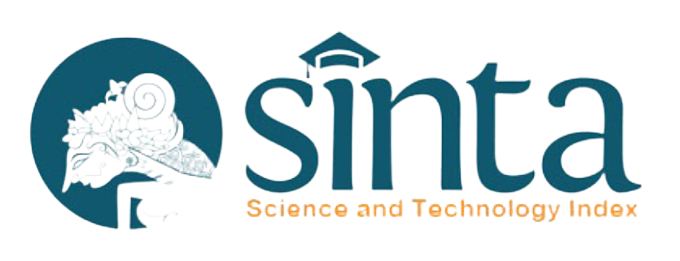Implementasi Robotic Process Automation untuk Proses Rekrutmen Mahasiswa Magang
DOI:
https://doi.org/10.25126/jtiik.2022955508Abstrak
Robotic Process Automation (RPA) adalah teknologi yang diyakini akan terus berkembang karena banyak memberikan manfaat terutama dalam membantu mengerjakan pekerjaan yang sifatnya berulang-ulang dan jumlah besar. Tulisan ini berisi tentang penelitian penggunaan perangkat lunak RPA dalam melakukan input data pada proses rekrutmen mahasiswa magang di PT. Telkom Indonesia. Proses rekrutmen ini ada 2 langkah proses yang dilakukan yaitu proses seleksi administrasi dan proses seleksi wawancara sehingga perlu dibuatkan sebuah bot RPA untuk mengotomatisasi masing-masing proses tersebut. Perangkat lunak RPA yang digunakan adalah perangkat lunak RPA yang dikembangkan oleh PT. Telkom Indonesia berbasis platform Open RPA. Penelitian dilakukan di laboratorium dan di lapangan melalui implementasi RPA secara langsung untuk proses rekrutmen mahasiswa magang. Penelitian di laboratorium untuk melihat perbandingan kecepatan proses dan akurasi antara proses menggunakan RPA dan dengan cara manual. Penelitian di lapangan untuk melihat sejauh mana keberhasilan menggunakan RPA dalam membantu proses rekrutmen mahasiswa magang serta mengetahui pendapat dari pegawai sebagai pengguna RPA. Penelitian di laboratorium menggunakan data simulasi sebanyak 40 sampel data, baik untuk proses seleksi administrasi maupun proses seleksi wawancara, Dari hasil percobaan dapat dilaporkan bahwa dengan menggunakan RPA dapat menghemat waktu sampai dengan 76% dan akurasi sebesar100%. Sementara itu untuk implementasi di lapangan, jumlah sampel data yang diproses sebanyak 1204 data untuk proses seleksi administrasi dan sebanyak 303 data untuk proses seleksi wawancara. Dari hasil implementasi RPA di lapangan, pegawai merasa sangat terbantu dan senang dengan keberadaan RPA
Abstract
Robotic Pocess Automation (RPA) is a technology that is believed to continue to grow because it provides many benefits, especially in helping to do repetitive and large amounts of work. This paper contains research on the use of RPA software in inputting data in the recruitment process of internship students at PT. Telkom Indonesia. This recruitment process has two processes, that are the administrative selection process and the interview selection process, so it is necessary to build an RPA bot to automate each of these processes. The RPA software used is the RPA software developed by PT. Telkom Indonesia is based on the Open RPA platform. Research is carried out in the laboratory and in the field through direct implementation of RPA for the recruitment process of internship students. Research in the laboratory to see the comparison of process speed and accuracy between processes using RPA and the manual method. Research in the field to see the extent to which the success of using RPA in helping the recruitment process of internship students and knowing the opinions of employees as users of RPA. Research in the laboratory using simulation data as much as 40 data samples, both for the administrative selection process and the interview selection process. From the experimental results it can be reported that using RPA can save time up to 76% and accuracy is 100%. Meanwhile, for implementation in the field, the number of data samples processed was 1204 data for the administrative selection process and 303 data for the interview selection process. From the results of the implementation of RPA in the field, employees feel very helpful and happy with the existence of RPA.
Downloads
Referensi
ANSARI, A.W., DIYA, P., PATIL S. dan SUNITA, P., 2019. A Review on Robotic Process Automation-The future of Business Organizations. 2nd International Conference on Advances in Science & Technology (ICAST-2019).
DOGUC, O. 2020. Robotic Process Automation and Its Future, DOI: 10.4018/978-1-7998-1125-1.ch021, January 2020. Turkey: GI Global. Tersedia di:
<https://www.researchgate.net/publication/338302068>
[Diakses 23 Juni 2021]
ENRIQUE, J.G., RAMIREZ, A.J., MAYO F, .J.D. dan GARCIA, J.A.G. 2020. Robotic Process Automation: A Scientific and Industrial Systematic Mapping Study. IEEE Access, DOI: 10.1109/ACCESS.2020.2974934 , Volume 8 2020, pp: 39113-39129, 18 Pebruari 2020.
GARTNER. 2020. Gartner Says Worldwide Robotic Process Automation Software Revenue to Reach Nearly $2 Billion in 2021. Tersedia di:<https://www.gartner.com/en/ newsroom/press-releases/2020-09-21-gartner-says-worldwide-robotic-process-automation-software-revenue-to-reach-nearly-2-billion-in-2021>.
[Diakses 23 Juni 2021].
GHOSH, G. 2018. Automation with RPA (Robotic Process Automation. International Journal of Computer Sciences and Engineering Vol.6(8), Aug 2018, E-ISSN: 2347-2693, pp: 475-477, 31 Agustus 2018.
HOFMANN, P., URBACH, N., SAMP, C. 2020. Robotic Process Automation. Electronic Markets, (2020) 30:99–106, DOI: 10.1007/s12525-019-00365-8, April 2020.
Tersedia di: <https://www.researchgate.net/publication/336769927>
KOSONEN, L. 2020. Impacts, Benefits and Implementation of RPA and Its Effect on Outsourced Work, DOI: 10.13140/RG.2.2.26625.89440, November 2020. Finlandia: LUT University.
Tersedia di:
<https://www.researchgate.net/publication/345975060>
MADAKAM, S., HOLMUKHE, R.M. dan JAISWAL, D. K. 2019. The Future Digital Workforce: Robotic Process Automation (RPA). Journal of Information Systems and Technology Management – Jistem USP, Vol. 16, 2019, e201916001, ISSN online:
-1775, DOI: 10.4301/S1807-1775201916001.
PATIL, S., MANE, V. dan PATIL, P. 2019. Social Innovation in Education System by Using Robotic Process Automation (RPA). International Journal of Innovative Technology and Exploring Engineering (IJITEE), ISSN: 2278-3075, Volume-8 Issue-11, pp: 3757-3760, September 2019.
RADKE, A.M., DANG, M.T., TAN, A. 2020. Using Robotic Process Automation (RPA) to Enhance Item Master Data Maintenance Process. Scientific Journal of Logistics.
e-ISSN 1734-459X, pp:129-140.
SIDERSKA, J., 2020. Robotic Process Automation, A Driver of Digital Transformation?. Engineering Management in Production and Services, DOI: 10.2478/emj-2020-0009, Volume 12, pp: 21-31.
TRIPATHI, A.M. 2018. Learning Robotic Process Automation. Birmingham: Pack Publishing Ltd.
VAJGEL, B., CORREA, P.L.P., SOUSA, T.T.D., QUILLE, R.V.E., BEDOYA, J.A.R., ALMEIDA, G.M.D., FILGUERAS, L.V.L., DEMUNER, V.R.S. dan MOLLICA., D. 2021. Development of Intelligent Robotic Process Automation: A Utility Case Study in Brazil. IEEE ACCESS, DOI: 10.1109/ACCESS.2021.3075693, Volume 9, pp: 71222-71235, 26 April 2021.
Unduhan
Diterbitkan
Terbitan
Bagian
Lisensi

Artikel ini berlisensi Creative Common Attribution-ShareAlike 4.0 International (CC BY-SA 4.0)
Penulis yang menerbitkan di jurnal ini menyetujui ketentuan berikut:
- Penulis menyimpan hak cipta dan memberikan jurnal hak penerbitan pertama naskah secara simultan dengan lisensi di bawah Creative Common Attribution-ShareAlike 4.0 International (CC BY-SA 4.0) yang mengizinkan orang lain untuk berbagi pekerjaan dengan sebuah pernyataan kepenulisan pekerjaan dan penerbitan awal di jurnal ini.
- Penulis bisa memasukkan ke dalam penyusunan kontraktual tambahan terpisah untuk distribusi non ekslusif versi kaya terbitan jurnal (contoh: mempostingnya ke repositori institusional atau menerbitkannya dalam sebuah buku), dengan pengakuan penerbitan awalnya di jurnal ini.
- Penulis diizinkan dan didorong untuk mem-posting karya mereka online (contoh: di repositori institusional atau di website mereka) sebelum dan selama proses penyerahan, karena dapat mengarahkan ke pertukaran produktif, seperti halnya sitiran yang lebih awal dan lebih hebat dari karya yang diterbitkan. (Lihat Efek Akses Terbuka).















